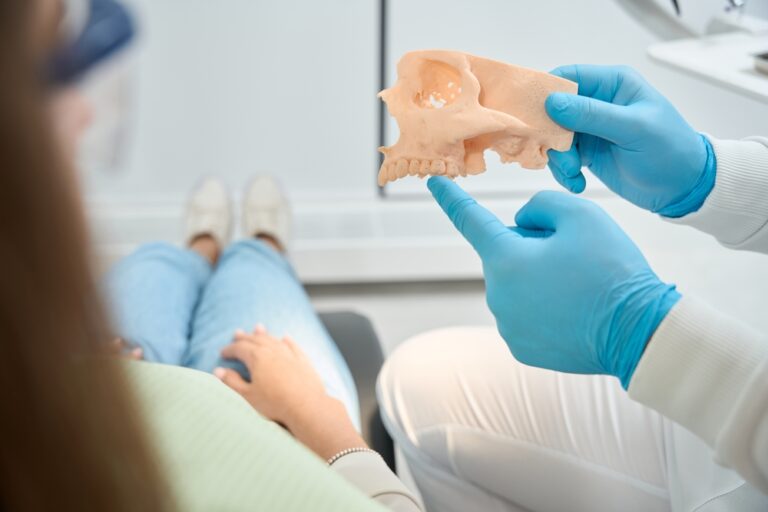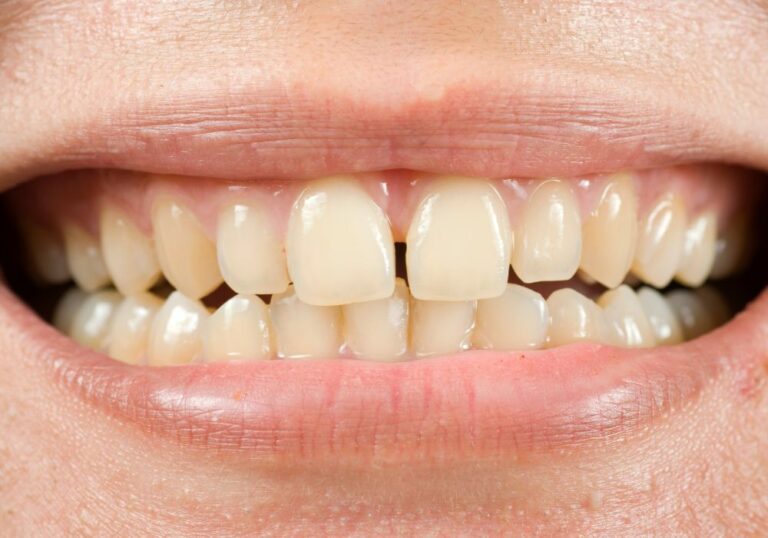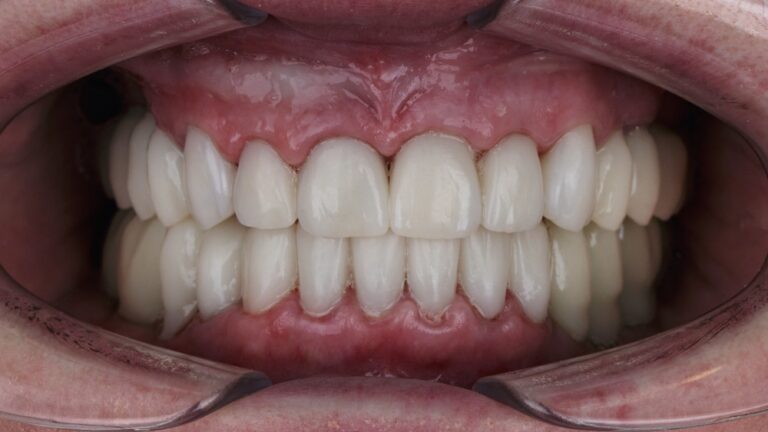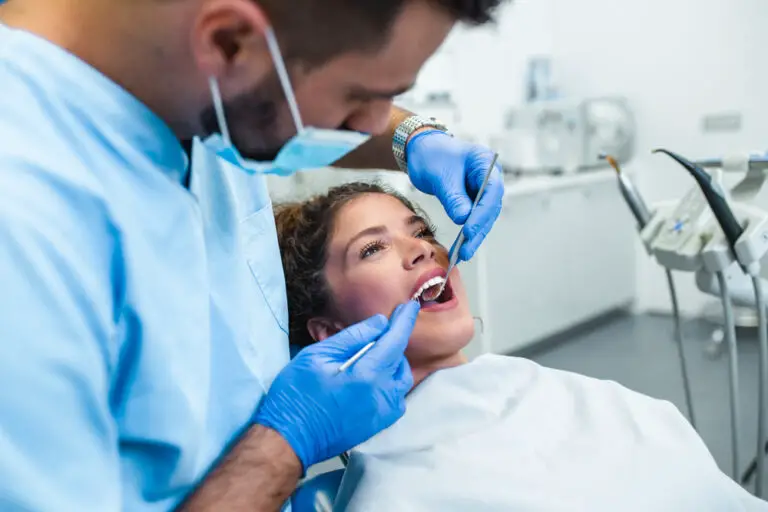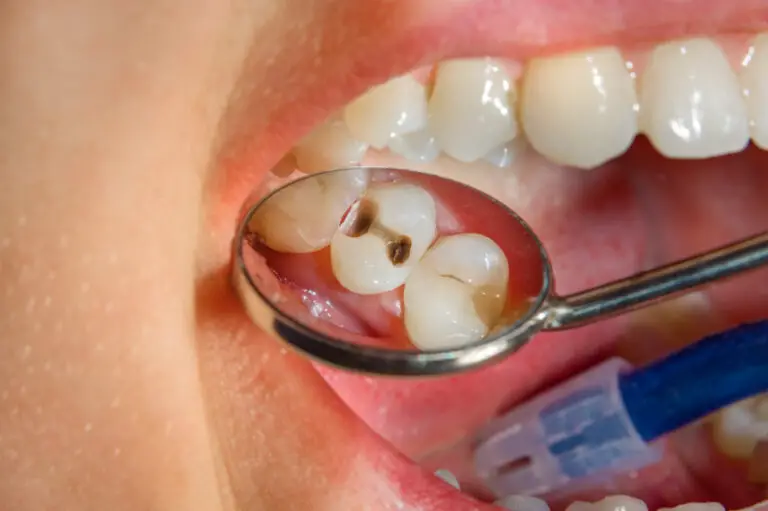Leaving toothpaste on your teeth overnight might sound like an odd thing to do, but it’s a practice that some people swear by. The idea is that the longer the toothpaste stays on your teeth, the more time it has to work its magic. But is there any truth to this claim? Let’s take a closer look.
To understand why leaving toothpaste on your teeth overnight might be beneficial, we first need to understand what toothpaste does. Toothpaste is designed to clean and protect your teeth by removing plaque, fighting bacteria, and strengthening enamel. Many toothpastes also contain fluoride, a mineral that helps prevent tooth decay. So, the longer toothpaste stays on your teeth, the more time it has to do its job. However, there are some potential risks to leaving toothpaste on your teeth overnight, which we’ll explore in more detail below.
Key Takeaways
- Leaving toothpaste on your teeth overnight may provide prolonged exposure to fluoride, which can help strengthen enamel and prevent tooth decay.
- However, there are potential risks to leaving toothpaste on your teeth overnight, such as tooth sensitivity and irritation.
- It’s important to weigh the potential benefits and risks and consult with a dental professional before making any changes to your oral care routine.
Understanding Toothpaste
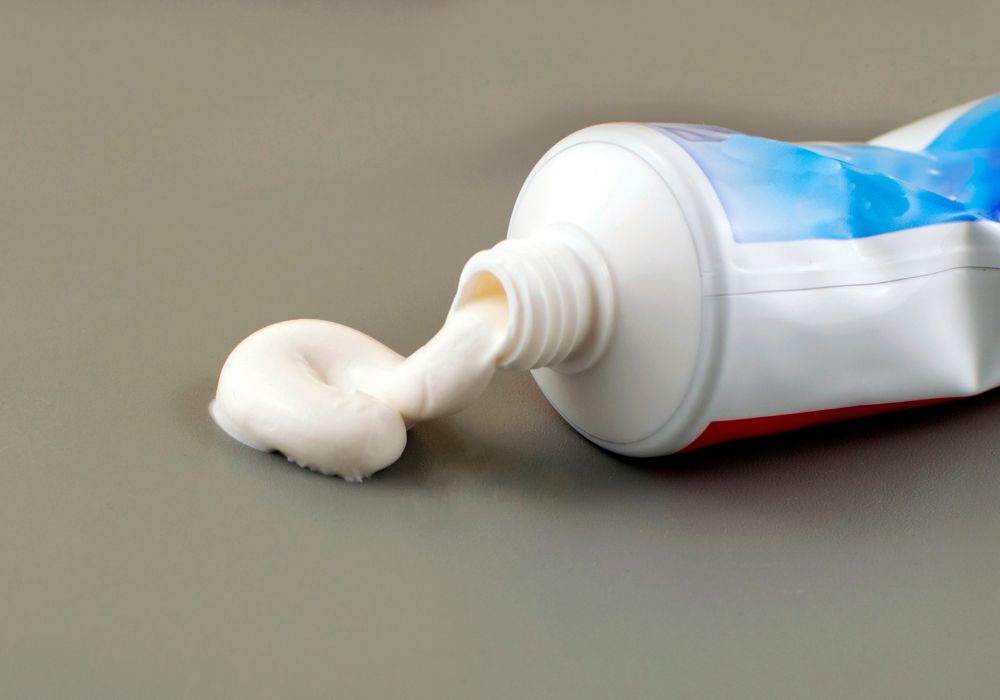
Toothpaste is a dental care product that helps to clean teeth and maintain oral hygiene. It is a combination of various ingredients that work together to provide effective cleaning and protection against dental problems.
The primary ingredient in toothpaste is abrasive agents, which helps to remove plaque and stains from teeth. The abrasives are usually made from minerals such as calcium carbonate, silica, and aluminum oxide. These minerals are safe for use on teeth and do not cause any harm.
Another essential ingredient in toothpaste is fluoride. Fluoride is a mineral that helps to strengthen teeth and prevent tooth decay. It works by remineralizing the enamel and making it more resistant to acid attacks from bacteria. Most toothpaste brands contain fluoride, and it is recommended by dentists as an essential ingredient for oral health.
Toothpaste also contains detergents that help to create foam and spread the toothpaste evenly in the mouth. The most common detergent used in toothpaste is sodium lauryl sulfate (SLS). It is safe for use in toothpaste and does not cause any significant harm to teeth or gums.
Other ingredients in toothpaste include flavoring agents, sweeteners, and preservatives. Flavoring agents are added to make toothpaste taste better, while sweeteners are added to mask the bitter taste of some ingredients. Preservatives are added to prevent bacterial growth and ensure that the toothpaste remains fresh and effective.
In conclusion, toothpaste is an essential dental care product that helps to maintain oral hygiene and prevent dental problems. It contains various ingredients that work together to provide effective cleaning and protection against tooth decay and gum disease. It is recommended that you use toothpaste twice a day, along with regular brushing and flossing, to maintain optimal oral health.
Why Leave Toothpaste on Teeth Overnight?
Leaving toothpaste on your teeth overnight has been a topic of debate in the dental community. Some people believe that it can be beneficial, while others think it can be harmful. In this section, we will explore why leaving toothpaste on your teeth overnight might be a good idea.
Firstly, toothpaste contains fluoride, which is a mineral that helps prevent tooth decay. When you brush your teeth with fluoride toothpaste, the fluoride coats your teeth and helps protect them from decay. Leaving toothpaste on your teeth overnight can give the fluoride more time to work, which can be beneficial in preventing cavities.
Secondly, leaving toothpaste on your teeth overnight can also help with sensitivity. Some toothpastes contain ingredients that can help desensitize your teeth. By leaving the toothpaste on your teeth for a longer period of time, these ingredients have more time to work and can help reduce sensitivity.
However, it is important to note that leaving toothpaste on your teeth overnight should be done in moderation. Excessive fluoride can be harmful and cause digestive discomfort. It is recommended to leave only a thin residue of toothpaste on your teeth overnight.
In summary, leaving toothpaste on your teeth overnight can be beneficial in preventing tooth decay and reducing sensitivity. However, it should be done in moderation and with caution to avoid any potential harm.
Possible Benefits
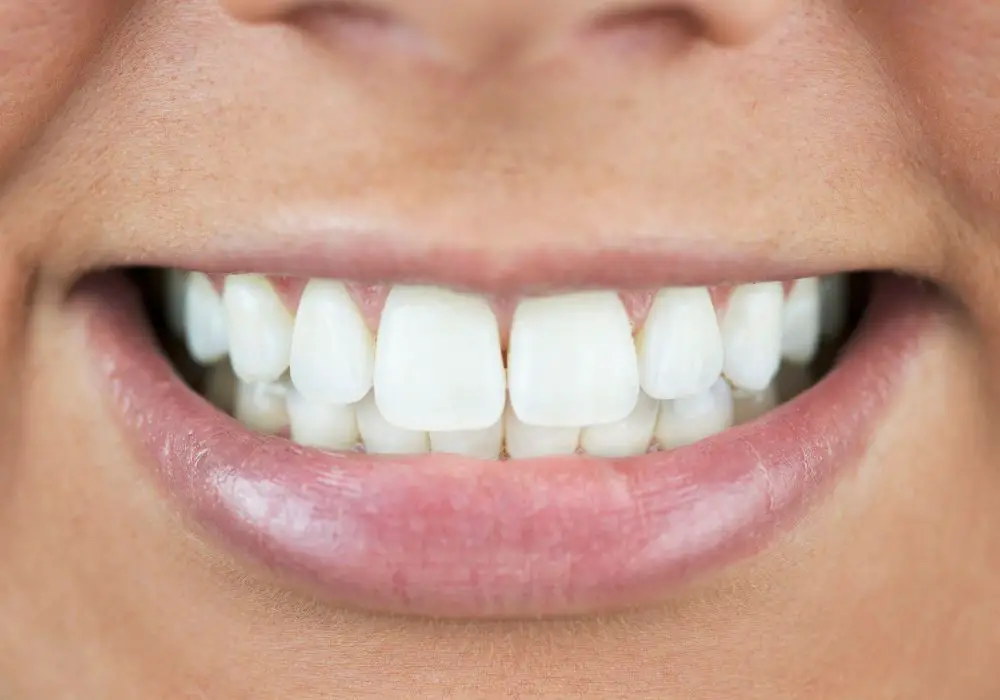
Whitening Effects
Leaving toothpaste on your teeth overnight may have some whitening effects. Toothpaste contains mild abrasives that can help remove surface stains on your teeth. Additionally, some toothpaste brands contain ingredients like hydrogen peroxide or baking soda, which can help lighten the color of your teeth.
However, it is important to note that leaving toothpaste on your teeth overnight is not a substitute for professional teeth whitening treatments. If you are looking to significantly whiten your teeth, it is best to consult with your dentist.
Reduced Sensitivity
Another possible benefit of leaving toothpaste on your teeth overnight is reduced sensitivity. Toothpaste contains fluoride, which can help strengthen your tooth enamel and reduce sensitivity. By leaving toothpaste on your teeth overnight, you are providing your enamel with a consistent source of fluoride, which can help reinforce its structure and combat the demineralization process caused by acids in the mouth.
It is important to note that if you have severe tooth sensitivity, you should consult with your dentist. Leaving toothpaste on your teeth overnight may not be enough to alleviate your symptoms.
Overall, leaving toothpaste on your teeth overnight may have some benefits, but it is important to use it in conjunction with regular brushing and flossing. Additionally, it is important to choose a toothpaste brand that contains fluoride and to consult with your dentist if you have any concerns about your oral health.
Potential Risks
Tooth Enamel Erosion
Leaving toothpaste on your teeth overnight can potentially lead to tooth enamel erosion. Toothpaste contains abrasive ingredients that are designed to help remove plaque and stains from your teeth. However, if these ingredients are left on your teeth for too long, they can start to wear away your tooth enamel, which can lead to tooth sensitivity and other dental problems.
Gum Irritation
Another potential risk of leaving toothpaste on your teeth overnight is gum irritation. Toothpaste contains chemicals that can be irritating to your gums, especially if you have sensitive gums or if you are allergic to any of the ingredients in the toothpaste. If you leave toothpaste on your teeth overnight, these chemicals can have more time to irritate your gums, which can lead to swelling, redness, and discomfort.
It is important to note that these risks are not common and can typically be avoided by following proper dental hygiene practices. It is recommended that you brush your teeth for two minutes, twice a day, and rinse your mouth thoroughly after brushing to remove any excess toothpaste. Additionally, you should use toothpaste that is specifically designed for your dental needs and avoid leaving it on your teeth for extended periods of time.
Professional Opinions
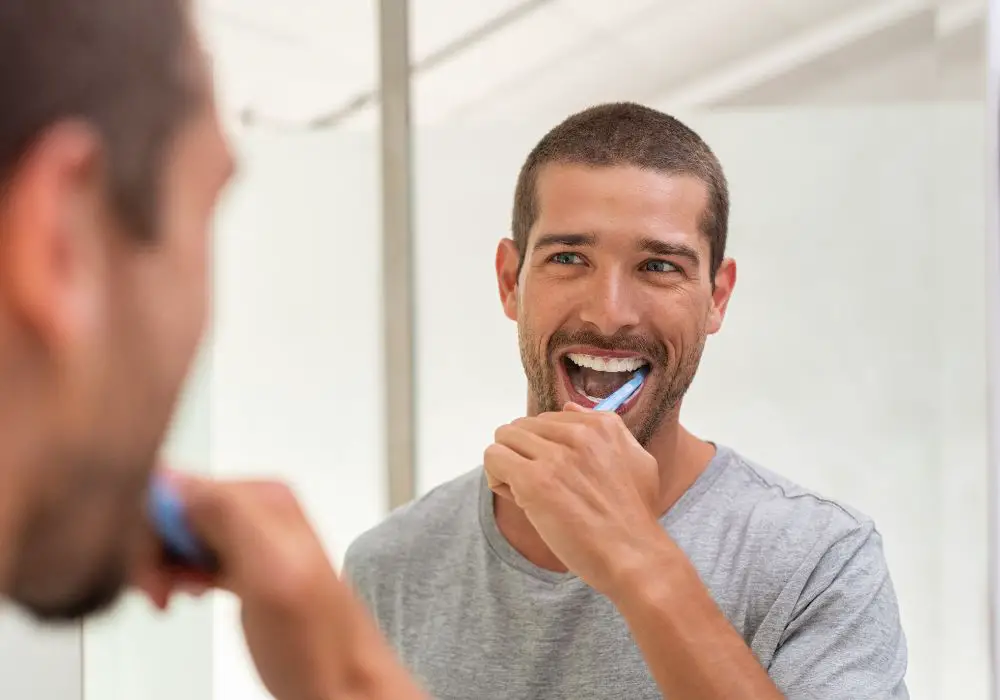
Many dental professionals have weighed in on the topic of leaving toothpaste on teeth overnight. Here are a few of their opinions:
- According to Dr. Ilan Gamburg, a dentist from Brielle, NJ, leaving toothpaste on your teeth overnight is not recommended. The detergents and fluoride in toothpaste can harm your soft and hard tissues, and biological dentists often recommend fluoride-free toothpaste.
- Dr. Hansjorg Lammers, another dentist, agrees that leaving toothpaste on your teeth overnight can be harmful. He advises against letting toothpaste get into your gums and teeth, as it can cause damage.
- On the other hand, some dental professionals believe that leaving toothpaste on your teeth overnight can be beneficial. Dr. Mark Burhenne, a dentist from California, suggests that doing so can help to strengthen your teeth and reduce sensitivity.
- Dr. Jeffrey Sulitzer, a dentist from New York, also believes that leaving toothpaste on your teeth overnight can be effective. He explains that the longer the toothpaste is in contact with your teeth, the more time the fluoride has to be absorbed.
Overall, it seems that there is some disagreement among dental professionals about whether leaving toothpaste on your teeth overnight is a good idea. It’s best to consult with your own dentist to determine what is best for your individual needs.
Alternative Methods for Oral Health
Maintaining good oral health is crucial for overall health and well-being. While leaving toothpaste on your teeth overnight may have some benefits, it is not a substitute for regular brushing, flossing, and using mouthwash. Here are some alternative methods for oral health:
Regular Brushing
Brushing your teeth twice a day is essential for removing plaque and preventing tooth decay and gum disease. Use a soft-bristled toothbrush and fluoride toothpaste to brush your teeth for at least two minutes each time. Make sure to brush all surfaces of your teeth, including the front, back, and chewing surfaces. Don’t forget to brush your tongue to remove bacteria and freshen your breath.
Flossing
Flossing is an important part of oral hygiene that helps remove plaque and food particles from between your teeth and under your gumline. Use a piece of floss about 18 inches long and wrap it around your index fingers. Gently slide the floss between your teeth, curving it around each tooth in a C-shape. Be careful not to snap the floss into your gums, as this can cause bleeding and damage.
Mouthwash
Using mouthwash can help kill bacteria and freshen your breath. Choose an alcohol-free mouthwash that contains fluoride to help strengthen your teeth. Rinse your mouth with mouthwash for 30 seconds after brushing and flossing. Do not swallow the mouthwash.
In addition to these methods, it is important to maintain a healthy diet and avoid sugary and acidic foods and drinks. Visit your dentist regularly for checkups and cleanings to ensure optimal oral health.
Frequently Asked Questions
How long should I leave toothpaste on my teeth?
It is recommended that you brush your teeth for at least two minutes, but you do not need to leave toothpaste on your teeth after brushing. In fact, it is recommended that you spit out the toothpaste and rinse your mouth thoroughly with water after brushing.
What happens if you just leave toothpaste on your teeth?
Leaving toothpaste on your teeth without rinsing can lead to the buildup of harmful bacteria in your mouth, which can cause tooth decay and gum disease. It is important to rinse your mouth with water after brushing to remove any remaining toothpaste and bacteria.
Does leaving toothpaste on your teeth overnight whiten them?
Leaving toothpaste on your teeth overnight is not recommended as it can cause tooth sensitivity and irritation. While some toothpaste may contain whitening agents, leaving it on your teeth overnight is not an effective way to whiten your teeth.
Can you go to sleep with toothpaste on your teeth?
No, it is not recommended to go to sleep with toothpaste on your teeth. Toothpaste contains ingredients that can be harmful if ingested, and leaving it on your teeth overnight can cause tooth sensitivity and irritation.
Is it OK to leave fluoride on your teeth overnight?
Fluoride is a beneficial ingredient in toothpaste that helps to strengthen tooth enamel and prevent tooth decay. However, it is not recommended to leave fluoride on your teeth overnight as it can cause tooth sensitivity and irritation.
What are the benefits of leaving toothpaste on your teeth overnight?
There are no proven benefits of leaving toothpaste on your teeth overnight. In fact, it is not recommended as it can cause tooth sensitivity and irritation. It is important to brush your teeth for at least two minutes and rinse your mouth thoroughly with water after brushing.

